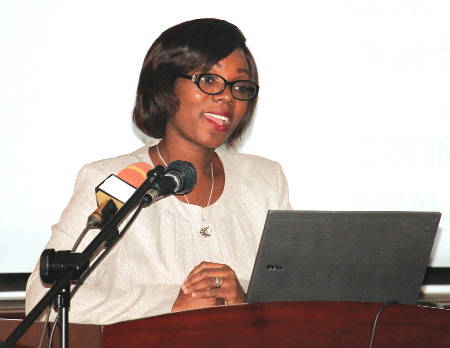
Malaria deaths reduce by 45 per cent in five years
Interventions, including improved case management programmes adopted over a five-year period, resulted in the drop of deaths caused by malaria in the country.
Malaria deaths in public hospitals dropped from 3,882 to 2,137 from 2010 to 2015. The figure shows a 45 per cent decrease in malaria deaths in the country in that period.
However, deaths from all illnesses increased considerably, that is, from 19,907 to 30,364, within the same period.
The Deputy Programme Manager of the National Malaria Control Programme (NMCP), Dr Keziah Malm, made this known at a symposium on malaria organised by the University of Ghana Malaria Centre of Excellence in Accra.
The symposium was on the theme: “Harnessing malaria research in the University of Ghana towards national development”. It brought together scientists, academicians, researchers, policy makers and students.
Dr Malm attributed the success achieved to the many interventions and improved case management programmes that had been adopted and implemented by the government in the effort to combat malaria.
She, however, said there was more to be done in the fight against the disease and stressed that defeating malaria required the engagement of other sectors outside of health, including finance, education, defence, environment, mining, industry and tourism.
Challenges
Dr Malm said malaria continued to be the number one illness in the country, accounting for 38.1 per cent of Outpatient Department attendance (OPD), 27 per cent admissions and seven per cent of deaths in the country in 2015.
She named some of the challenges encountered in the effort to control malaria as the failure by beneficiaries to use mosquito nets regularly and the inappropriate attitude of caregivers of children under five years.
Dr Malm said poor environmental management, including the activities of galamsey operators who leave their pits uncovered after mining, continued to be a threat to malaria control, while many people in the country also practised presumptive treatment for malaria because all fevers were classified as malaria.
Linking research and policy
In his remarks, the Country Representative of the World Health Organisation (WHO), Dr Owen Kaluwa, said challenges in malaria research and other researches involved translating evidence into effective policies. He, therefore, called for more collaboration between researchers and policy makers to make that possible.
The Vice Chancellor of the University of Ghana, Professor Ernest Aryeetey, who chaired the symposium, said he was impressed with the interventionist activities of the NMCP, as they had allayed the scepticism people often had about government-led activities and, therefore, ensured that they did not succeed.
In a welcome address, the Convener of the Noguchi Memorial Institute for Medical Research (NMIMR), Prof. Kwadwo A. Koram, said the symposium had become necessary considering that a lot of research had been undertaken into malaria that ought to be linked to policies.
Other presentations, including parasite biology and immunology, transmission and vector studies and drug development and resistance, were also made at the symposium.
Writer's email:
